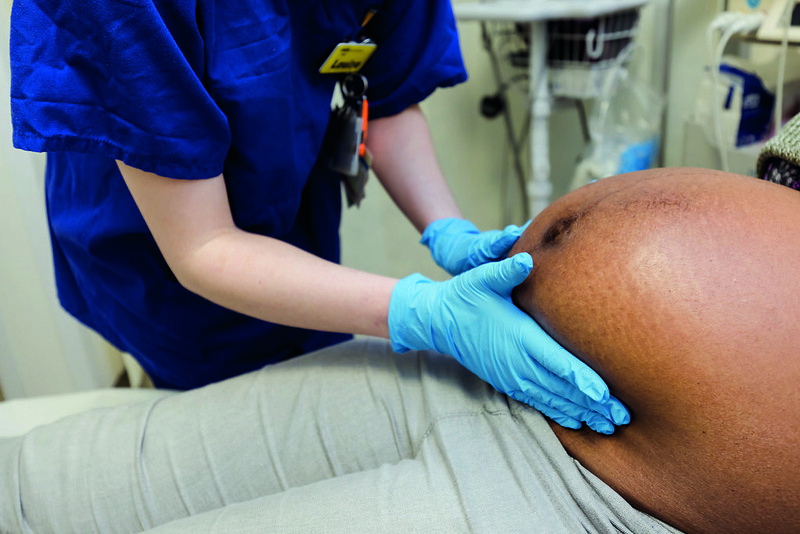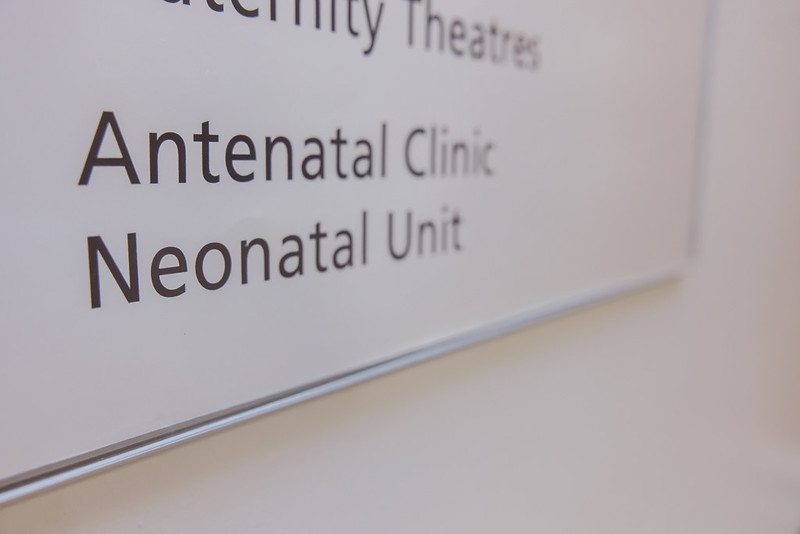An exclusive poll of NHS staff has today (Friday) revealed that four out of five NHS health workers (80%) would quit the NHS over widespread concerns about their pay.
Of those considering leaving, 79% say an inflation-busting pay rise would persuade them to stay. The results come as thousands of NHS workers plan to join the TUC’s cost of living rally in London tomorrow (Saturday).
The rapidly rising cost of living and years of poor pay increases for NHS staff, which have not kept pace with inflation, mean more are struggling with day to day living costs. The unions say the situation is worsening by the week with more staff turning to foodbanks to feed their families and falling into debt.
The majority of the more than 2,000 people who responded to the poll said the main reasons they are considering leaving the NHS was because their pay was not keeping up with inflation, the increasing cost of driving for work and hospital parking charges meant they have no other choice.
Alarmingly one in five staff (22%) are now either actively looking or already in the process of leaving the NHS for better-paid jobs which will further worsen staff shortages.
After pay, feeling undervalued by the government and their employer was most likely to make people consider leaving. This was cited by nearly two-thirds of staff (64%) who said they felt utterly undervalued by the government or their employer.
The survey which was run by the #WithNHSStaff campaign, a campaign that represents 13 NHS health unions including the Royal College of Midwives (RCM), UNISON, Unite, Chartered Society of Physiotherapy (CSP) and the GMB.
Commenting, RCM’s Director for Employment Relations Alice Sorby said:
“We have all warned the Government that the NHS staff recruitment and retention crisis cannot be solved without a game changing retention package and an inflation- busting pay rise. Without this the NHS will continue to lose staff at alarming rates. Staff have had enough, and they are now a breaking point, it’s within the Government gift to turn this worsening situation around by paying all NHS staff what they are worth.”
Over 63% of staff surveyed said the stress and pressure of staffing shortages was impacting their health. With 70% saying they are unable to provide the level of quality care they would like. The Unions say that understaffing is now at unprecedented levels, and this is having a detrimental impact on the physical and mental health of its members who are frustrated that they are stuck in a system which is preventing them delivery quality care to patients.
UNISON Head of Health Sara Gorton said: “NHS staffing is in crisis and services are suffering. Without a significant pay rise, under-pressure health workers won’t stick around. That’ll make delays and cancellations a whole lot worse.
“Ministers must find the cash to invest in an urgent retention package, starting with a pay rise to deal with the cost-of-living crisis. That’s the way to ensure patients get the treatment they need.”
CSP Director of Employment Relations and Union Services, Claire Sullivan, added:
“These shocking figures must act as a wakeup call. NHS staff are exhausted and overworked after the hardest two years of their working lives. More than ever before, the NHS must be able to recruit new staff but also to retain its current workforce; a real terms pay rise is an essential component of making that a reality.”
Unions say the survey results suggest a decent package could help significantly with staff retention and are again calling on the Government to listen. An uplift would not only help staff to cope with rising costs of living, but also signal appreciation for the skills and dedication of all healthcare workers.
ENDS
Case studies
Sarah, a midwife, said: “We’re stretched beyond our limits. I see colleagues crying and overwhelmed regularly. I work 12-hour-plus shifts with no break or food, and I’m working so many unpaid extra hours that my actual wage is probably below minimum wage.”
Melissa, a physiotherapist, said: “Despite working full time, I struggle to pay my bills and pay off debt. I can’t plan for the future – a family or home – because my ability to save is affected by inflation and the lack of pay rise.”
Adele, a nurse, said: “I work with people just like myself, who cannot afford to pay their bills. It isn’t acceptable, we’re caring for patients but who is caring for the Staff? I don’t feel as though staff are valued or rewarded for their hard work. It is devastating that we’re breaking our backs caring for patients and it also feels as though we’re not allowed to speak about the issues.”
Karl, a radiologist, said: “There are many highly qualified people who work for the NHS despite the fact they could easily find employment in the private sector where they would be much better compensated. I believe these people stay with the NHS because they believe in their work, and they are dedicated to providing excellent healthcare to everybody who requires care. Our commitment and sacrifice should not be exploited by diminishing our pay through a combination of through insufficient pay increases and increased taxes.”
Laura, a trainee nursing associate, said: “I love my job, because I meet inspirational people and I can make a difference each day. I do 13-hour shifts and I work 37.5 hours a week and I am a full-time student apprentice. I come out with £1200 a month after being scorned by the increase of tax and national insurance. I cannot afford to pay my bills most months, so I have to decide what is more important, my energy bill, food shopping, keeping up with mortgage payments have considered getting a job in retail as it would be less stress and I would be better off financially. Something has to change.”
Notes to editors
To contact the RCM Media Office call 020 7312 3456, or email media@rcm.org.uk
For Unison media enquiries contact Liz Chinchen M: 07778 158175 or press@unison.co.uk
To contact the Chartered Society of Physiotherapy (CSP) call (0)207 306 1111 or email pressoffice@csp.org.uk.
- The 13 NHS unions that are represented by the #WithNHSStaff campaign are The Royal College of Midwives (RCM), Unison, Chartered Society of Physiotherapy, UNITE, British Association of Occupational Therapists, British Dietetic Association, British Orthoptic Society, Chartered Society of Physiotherapy, Royal College of Podiatry, The Society of Radiographers, Federation of Clinical Scientists, GMB, Managers in Partnership and Prison Officers Association.
- The poll of NHS staff was conducted during March-April 2022 – with 2,239 responses
- Read more about the #WithNHStaff here: https://withnhsstaff.org/
- It’s time to halt NHS staff exodus with game-changing pay rise, say health unions (rcm.org.uk)
- On social media #WithNHSStaff
- TUC’s – We demand better: March and Rally, 18 June https://www.tuc.org.uk/DemandBetter
About the RCM
The Royal College of Midwives (RCM) is the only trade union and professional association dedicated to serving midwifery and the whole midwifery team. We provide workplace advice and support, professional and clinical guidance, and information, and learning opportunities with our broad range of events, conferences, and online resources. For more information visit the RCM | A professional organisation and trade union dedicated to serving the whole midwifery team.



